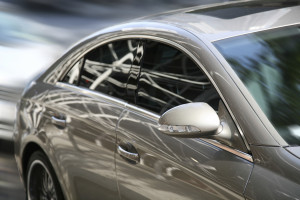Dozens of Boston-area municipal leaders on Wednesday endorsed new or expanded transportation revenue options, including a 15-cent increase in the state’s 24-cent per gallon gas tax, as House lawmakers approach a vote on the topic.
The Metropolitan Mayors Coalition, the North Shore Coalition and the Commuter Rail Communities Coalition penned a joint press release calling for the legislature and Gov. Charlie Baker to approve “significant new revenue” to enable investments in state roadways and transit. The North Shore Coalition consists of 18 cities and towns north of Boston. The Commuter Rail Communities Coalition, led by Lynn Mayor Thomas McGee and Bedford Town Manager Sarah Stanton, includes many cities and towns served by the MBTA commuter rail.
With their announcement Wednesday, the mayors and town managers became the latest stakeholders to support targeted tax and fee hikes as a way to modernize aging public transit infrastructure, mitigate a collective traffic nightmare and boost economic opportunity.
“The actions we take now will define Boston and our region for the next 10 years and the next generation,” Boston Mayor Martin Walsh said in a statement. “We need to take the essential next steps to improve mobility in our city and our state, and increasing revenue for critical infrastructure is needed to ensure our current and future residents are able to move around the region in an equitable, affordable and reliable manner.”
The groups, collectively representing more than three dozen communities including Boston, estimated a 15-cent increase in the state gas tax would bring in about $450 million more per year for transportation needs.
Municipal leaders also backed expanding tolling to additional highways, higher fees on ride-hailing services such as Uber and Lyft, and implementation of the Transportation Climate Initiative (TCI) cap-and-invest program that several northeast and mid-Atlantic states are still developing.
They also called for the state to empower communities with new tools to generate their own transportation funding, such as value capture or regional ballot initiatives, ideas that have stalled on Beacon Hill.
“We cannot continue our historic pattern of under-investing in transit, disproportionately burdening low-income communities and communities of color. These groups need affordable, efficient and reliable ways to get around,” Chelsea City Manager Thomas Ambrosino said in the release. “We need to prioritize equity if we want to link everyone in our region to opportunities.”
House Speaker Robert DeLeo has said he plans for his chamber to take up a transportation revenue bill before lawmakers end their final formal session for the year on Nov. 20.
Neither he nor his deputies have released a clear outline of what legislation they will consider, but both Revenue Committee Chair Mark Cusack and Transportation Committee Chair William Straus have said a gas tax increase is almost certain to be a component.
A majority of the Massachusetts Business Coalition on Transportation’s members announced last month that they also support increases to the gas tax – which was last raised by 3 cents a gallon in 2013 – and higher fees on ride-hailing trips.
Like the municipal leaders did Wednesday, the Greater Boston Chamber of Commerce backed a 15-cent increase to the state’s gas tax, though the group specified the measure should be phased in over three years.
Other business groups, including the Associated Industries of Massachusetts, have slammed potential gas tax hikes as excessive given that implementation of TCI is also likely to raise fuel prices on consumers.
Gov. Charlie Baker, whose administration has been working with other states to develop the TCI’s cap-and-invest program, does not support any increase in the Massachusetts gas tax.
“We’ve said all along that we don’t think the gas tax is the right way to go, primarily because it is just Massachusetts, it can only be used for roads and bridges, and people would be able to just go to other states to purchase gasoline, which puts a burden on retailers here in Massachusetts and really won’t raise the money that people talk about,” Baker said at an Oct. 30 event.
If the House follows DeLeo’s projected timeline, the vote will come two weeks after the MBTA Fiscal and Management Control Board adopted resolutions calling for a long-term transformation of the commuter rail system into a mostly electrified network with rapid service – a change that will cost billions of dollars and take decades to complete.
Coalition members said Wednesday that the additional revenue is crucial to improving the transportation system, which plays a key role in access to affordable housing, economic growth and greenhouse gas reduction.
“A reliable transportation system that connects the entire Commonwealth is a cornerstone of long-term economic vitality,” said Bedford Town Manager Sarah Stanton. “When we invest in local roads and multi-modal infrastructure, we make it safer to get around our communities. When we connect people to reliable transit, we alleviate congestion and its negative impacts. We need to have a predictable revenue stream in order to achieve our shared vision and to meet our needs today and into the future.”







